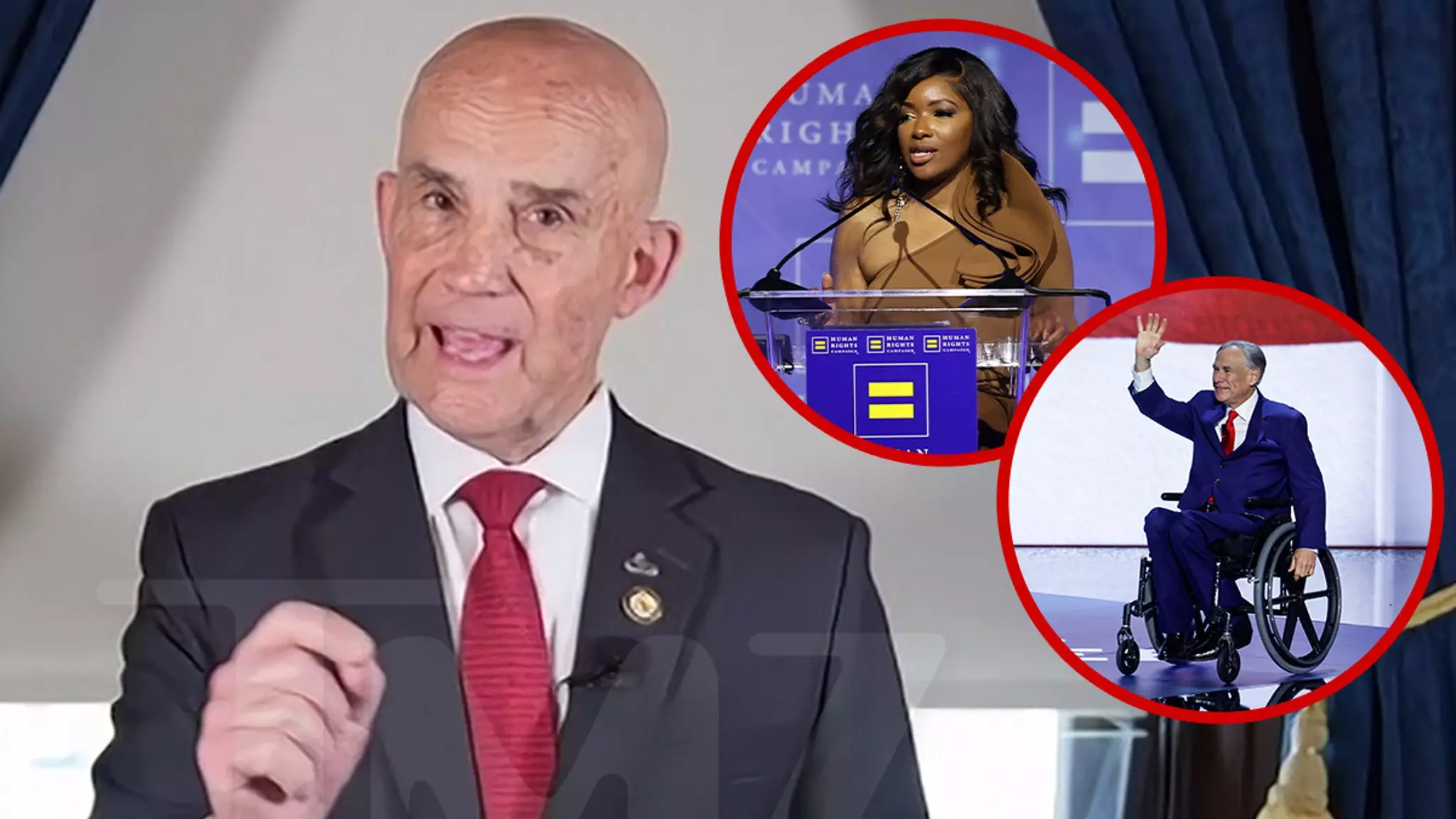In recent weeks, the political arena has been ignited by a controversial remark made by Congresswoman Jasmine Crockett, who humorously referred to Texas Governor Greg Abbott as “Governor Hot Wheels.” The quip, which was evidently intended to critique Abbott’s handling of severe political issues rather than mock his disability, has become the center of a heated debate. Congressman Keith Self has been vocal in condemning Crockett for her comments, labeling her a bully and suggesting that her actions reflect poorly on the Democratic Party. However, the hypocrisy present in this critique is staggering, especially when considering Self’s apparent reluctance to denounce past remarks made by former President Donald Trump regarding individuals with disabilities.
Let’s Talk About Context
Critics often argue that political jokes, especially those that touch on sensitive subjects like disabilities, must be handled with care. Self’s disdain for Crockett’s wording is understandable from a perspective of political decorum, yet his selective outrage reveals a deeper issue of inconsistency in how we respond to derogatory comments across party lines. While Self argues for the virtues of “self-deprecation” in political banter, it raises the question: why is it acceptable for one political figure—like Abbott—to joke about his condition, while another—Crockett—must carry the weight of public scorn for a similar tone? It’s this inconsistency that fosters a hostile environment within political discourse.
The Thin Line of Humor
Crockett herself has defended her comments, clarifying that her aim was to critique Abbott’s policies, particularly his treatment of migrant communities, rather than to ridicule his disability. This sheds light on an important aspect of political humor: intention matters. Political jabs that are perceived as casually derogatory can often overshadow the actual message. If we delve deeper, one could argue that humor can be a powerful tool for amplifying social issues, not just a weapon for disparagement.
Victim vs. Perpetrator Narratives
What’s particularly captivating about this situation is how narratives of victimhood and perpetration play out in the public eye. Crockett’s adversarial role against Abbott became amplified by the media cycle, where one woman’s offensive joke transformed her into a villain overnight. The mockery of disabilities often brings up questions about privilege and power dynamics, which only deepen existing rifts in our political framework. Conversely, Self’s lack of accountability towards Trump’s similar mocking behavior appears to indicate a troubling double standard—a dangerous practice that undermines the gravity of disability discourse in politics.
A Call for Authenticity
In an age where accountability is more critical than ever, politicians must navigate the tightrope of humor with caution and consideration. Crockett’s refusal to apologize may mean she perceives more merit in standing her ground than in succumbing to public outrage. However, the dialogue surrounding political rhetoric should expand beyond mere comment versus consequence; it should challenge us to confront how humor can complicate substantive discussions. It’s time for lawmakers to introspectively and collectively redefine what is deemed acceptable discourse and to foster a political environment where genuine engagement outweighs the need for inflamed tensions through ridicule.

